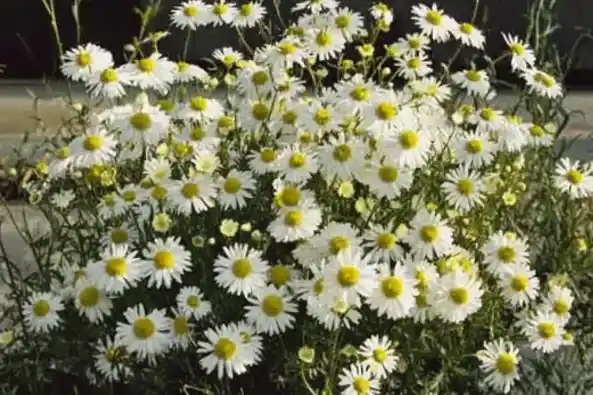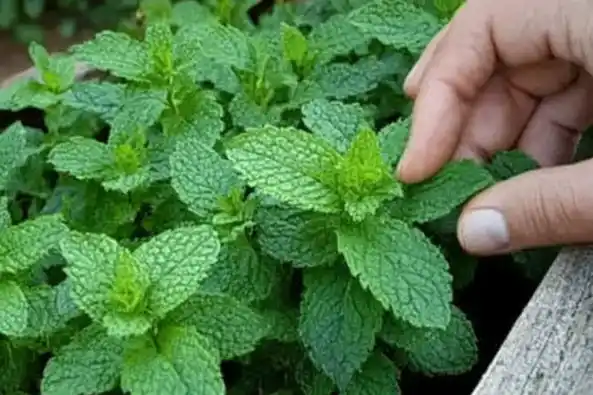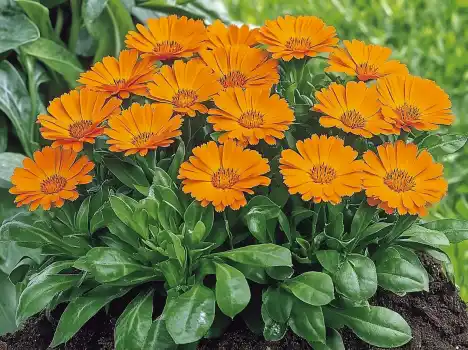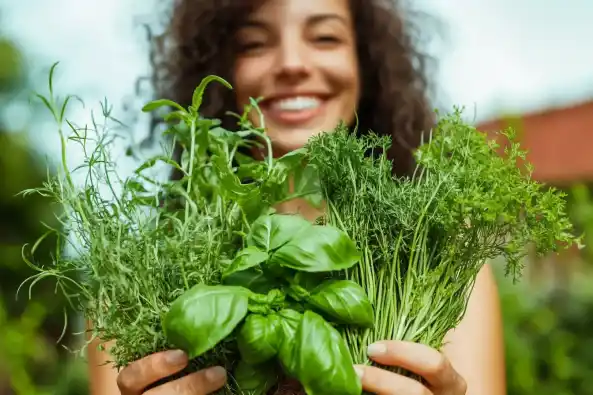Introduction
Growing medicinal herbs at home offers numerous benefits, from creating natural remedies to enhancing your teas and meals. Summer provides the perfect conditions for cultivating these versatile plants, with long days of sunshine and warm temperatures encouraging healthy growth. Whether you’re looking to boost your immunity, soothe stress, or add fresh flavors to your dishes, these six medicinal herbs are must-haves for your garden this season.
Medicinal Herbs to Grow This Summer
1.Chamomile (Matricaria chamomilla)

Uses: Chamomile is well-known for its calming effects, making it a popular ingredient in herbal teas. It also has soothing properties for skincare, helping with inflammation and irritation.
Growing Tips: Plant chamomile in full sun and well-drained soil. Regular watering is essential, but avoid overwatering as the roots prefer slightly dry conditions. Harvest flowers when they are fully open for the best potency.
Discover the best herb pairings to grow together in pots or containers.
2.Echinacea (Echinacea purpurea)
Uses: Known for boosting immunity and helping to combat colds and infections, echinacea is a powerhouse in natural medicine.
Growing Tips: This herb thrives in sandy, well-drained soil and requires moderate watering. Plant it in a sunny spot to encourage vibrant blooms. Cut back stems after flowering to promote new growth.
3.Lemon Balm (Melissa officinalis)

Uses: Lemon balm is celebrated for its stress-relieving properties and ability to support healthy digestion. Its citrusy aroma makes it a delightful addition to teas and tinctures.
Growing Tips: Lemon balm grows best in partial shade and moist, nutrient-rich soil. Prune regularly to prevent the plant from becoming too woody and to encourage fresh, tender leaves.
4.Basil (Ocimum basilicum)
Uses: While commonly used in culinary dishes, basil also has anti-inflammatory properties and can be infused into oils for natural remedies.
Growing Tips: Basil thrives in warm temperatures and requires consistent watering. Ensure the soil is well-drained and rich in organic matter. Pinch off flower buds to focus energy on leaf production.
5.Calendula (Calendula officinalis)

Uses: Calendula is a versatile herb known for soothing skin irritations and promoting wound healing. It’s often used in salves and creams.
Growing Tips: Plant calendula in full sun and fertile, well-drained soil. Regular deadheading encourages continuous blooms, ensuring a steady supply of flowers for your remedies.
Learn how to start an herb garden from scratch with our comprehensive guide.
6.Sage (Salvia officinalis)
Uses: Sage supports digestion and respiratory health, making it a staple in both the kitchen and the medicine cabinet.
Growing Tips: Sage thrives in dry, well-drained soil with plenty of sunlight. Be cautious not to overwater, as this herb prefers slightly arid conditions. Prune regularly to maintain its shape and promote new growth.
Tips for a Thriving Medicinal Herb Garden
Soil Preparation
Enrich your garden beds with organic compost to provide essential nutrients. Well-drained soil is key for most medicinal herbs to prevent root rot and other issues.
Watering Schedule
Herbs generally prefer slightly dry conditions, so avoid overwatering. Water deeply but less frequently to encourage strong root systems.
Pest Management
Use natural remedies like neem oil or companion planting to protect your herbs from pests. For instance, planting basil near tomatoes can deter aphids and other insects.
Discover more about pairing herbs for a pest-free garden.
How to Use Your Homegrown Herbs
Making Herbal Teas
- Chamomile Tea: Steep fresh or dried chamomile flowers in hot water for a calming bedtime drink.
- Lemon Balm Tea: Brew lemon balm leaves for a refreshing, stress-relieving tea.
DIY Remedies
- Calendula Salve: Infuse calendula petals in oil and mix with beeswax to create a soothing salve for cuts and burns.
- Basil-Infused Oil: Use fresh basil leaves to create an anti-inflammatory oil perfect for massages or culinary uses.
Explore more herbal remedies and uses for your garden herbs.
Cooking with Herbs
- Sage: Incorporate sage into summer dishes like roasted vegetables or herb-infused butters.
- Basil: Use basil leaves in salads, pasta sauces, and homemade pesto for a burst of fresh flavor.
Conclusion
Growing medicinal herbs in your garden this summer is an easy and rewarding way to embrace natural health remedies and elevate your cooking. From the soothing chamomile to the versatile basil, these six herbs offer a range of benefits for your well-being. Start your herb garden today and enjoy the therapeutic and culinary delights all season long.

